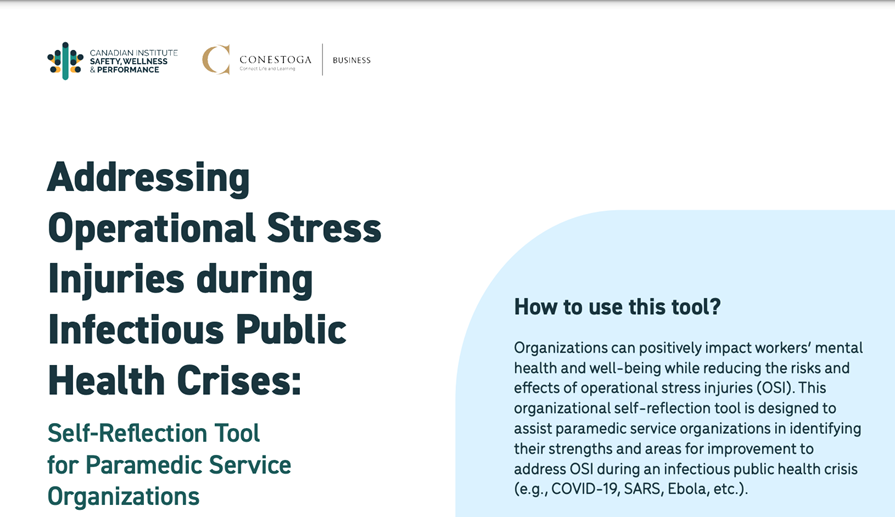Addressing Operational Stress Injuries during Infectious Public Health Crises: Self-Refection Tool for Paramedic Service Organizations

How to use this tool? Organizations can positively impact workers’ mental health and well-being while reducing the risks and effects of operational stress injuries (OSI). This organizational self-refection tool is designed to assist paramedic service organizations in identifying their strengths and areas for improvement to address OSI during an infectious public health crisis (e.g., COVID-19, SARS, Ebola, etc.).
This organizational self-refection tool lists evidence-informed recommendations based on the Ten Organizational Elements presented in the Guideline for Paramedic Service Organizations to Address OSI during Infectious Public Health Crises (henceforth referred to as the “Guideline”). This self-refection tool should be used in conjunction with the Guideline.
Addressing OSI in the workplace requires an integrated, coordinated, and continuous approach. To reflect this, each section of this tool asks you to indicate the status and implementation of: 1) the existing organizational policies and infrastructure; 2) ongoing practices; and 3) specific initiatives and programs that were available during an infectious public health crisis. At the end of each section, space is provided for you to document the lessons learned and any additional organizational activities that have not been listed.
This is NOT an assessment or compliance tool but rather a refection tool. Although organizations should strive towards achieving most of the recommended check-list items (presented in green), the degree of how much each of the items, or the combination of items, would impact paramedics’ risk for OSI is currently unknown.

